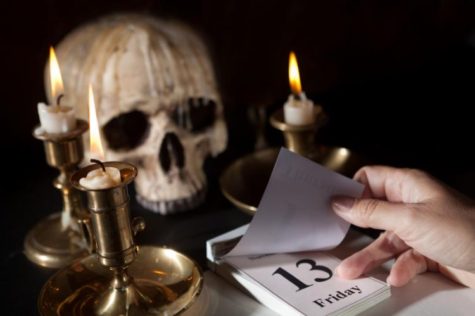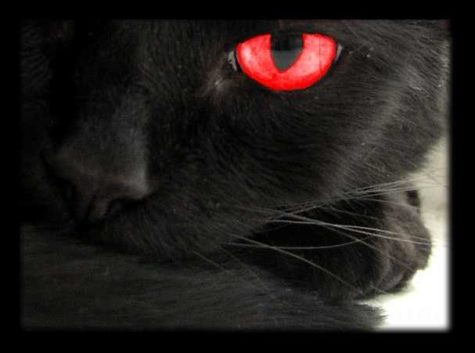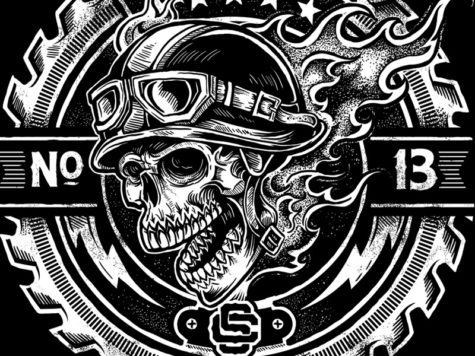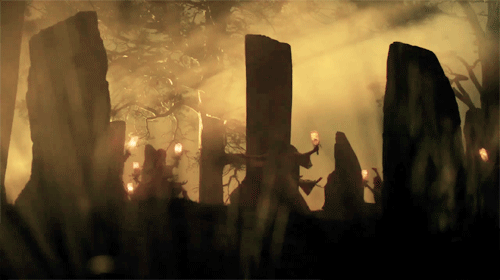Unlucky
Friday the 13th occurs when the thirteenth day of a month falls on a Friday, which superstition holds to be a day of bad luck. In the Gregorian calendar, this day occurs at least once, but at most three times a year. Any month’s 13th day will fall on a Friday if the month starts on a Sunday.
There are a lot of people that are superstitious about Friday the 13th. However not many have a full understanding of the significance of this day. It has been suggested that Friday has been considered an unlucky day because, according to Christian scripture and tradition, Jesus was crucified on a Friday.
Several theories have been proposed as to why Friday the 13th is considered to be unlucky One theory is that it is a combination of two older superstitions:
- Thirteen is an unlucky number
- Friday is an unlucky day
Put the two together, and you have a doubly unlucky day. Add to it the fact that it doesn’t happen often, and it makes for some wonderful stories of doom.
Why 13 is an unlucky number:
In numerology, the number twelve is considered the number of completeness, as reflected in the twelve months of the year, twelve hours of the clock, twelve tribes of Israel, twelve Apostles of Jesus, twelve gods of Olympus, etc., whereas the number thirteen was considered irregular, transgressing this completeness. There is also a superstition, thought by some to derive from the Last Supper or a Norse myth, that having thirteen people seated at a table will result in the death of one of the diners.
Why is Friday an unlucky day?
Friday has been considered an unlucky day at least since the 14th century’s The Canterbury Tales, and many other professions have regarded Friday as an unlucky day to undertake journeys or begin new projects. Black Friday has been associated with stock market crashes and other disasters since the 1800’s. It has also been suggested that Friday has been considered an unlucky day because, according to Christian scripture and tradition, Jesus was crucified on a Friday.
Here’s one theory:
The actual origin of the superstition, appears also to be a tale in Norse mythology. Friday is named for Frigga, the free-spirited goddess of love and fertility. When Norse and Germanic tribes converted to Christianity, Frigga was banished in shame to a mountaintop and labeled a witch. It was believed that every Friday, the spiteful goddess convened a meeting with eleven other witches, plus the devil — a gathering of thirteen — and plotted ill turns of fate for the coming week.
For many centuries in Scandinavia, Friday was known as “Witches’ Sabbath.” with Friday the 13th having an even deeper more sinister significance.
But maybe it’s not unlucky at all!
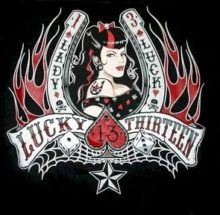 In fact Friday the 13th can be a very lucky day. Friday is also associated with Venus, the Roman Goddess of love, beauty and fertility and Friday is viewed by many pagans as the best day to perform any magick relating to Venus’ areas of expertise: love, fertility and beauty.
In fact Friday the 13th can be a very lucky day. Friday is also associated with Venus, the Roman Goddess of love, beauty and fertility and Friday is viewed by many pagans as the best day to perform any magick relating to Venus’ areas of expertise: love, fertility and beauty.
The number 13 has been a magical number since the the Ancient Egyptians first depicted the Ladder to Eternal Life. They believed that there were twelve steps on the ladder to eternal life and knowledge and to take the thirteenth step meant going through death into everlasting life. Thirteen, for the Egyptians, was associated with immortality.
The number 13 in the Coperos religion (small culture in brazil) is like a God number. All coperos must know that this number can save the humankind. In Sikhism, the number 13 is considered a special number since 13 is tera in Punjabi, which also means “yours” (as in, “I am yours, O Lord”).
There are other significances of the number 13:
- There are thirteen Moon cycles in a year
- The ancient Lunar calendar had 13 months
- A traditional coven has 13 members
- Romans require 13 guests be present at weddings
- In the Hebrew faith age 13 is considered to be an adult
- There are 13 players on a rugby team
- There are 13 cards of each suit in a deck of cards
The Knights Templar and Friday the 13th:
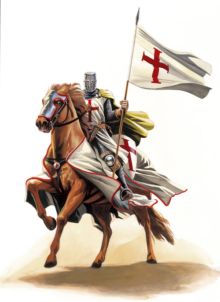 Another theory about the origin of the superstition traces the event to the arrest of the legendary Knights Templar.
Another theory about the origin of the superstition traces the event to the arrest of the legendary Knights Templar.
The Knights Templar were a monastic military order founded in Jerusalem in 1118 C.E. Their original mission was to guide and protect Christian pilgrims along the path from Europe to Jerusalem during the Crusades. Through this mission, the Templars developed a banking system to protect the finances of the traveling pilgrims, then expanded this system throughout their holdings in Europe.
Over time, France’s Philip IV of France amassed a debt to the Knights Templar for years of service. He had nearly depleted his money due to his ongoing battles with England. King Phillip became envious of the Knights Templar and their rise to power, so he set his sights on their famed fortunes. Philip devised a plan to arrest all the Knights Templar and charge them with crimes so devastating that no person or group would come to their defense.
The charges against them were religious in nature and backed by the papacy of the Vatican and Pope Clement V. His plan had to be swift and carefully put together so as to not alert the Templars in advance.
King Phillip’s orders were sent a month in advance to the King’s Men and other Bailiffs. They were not to be opened till dawn on Friday, October 13, 1307. The charges against the Templars were of the highest accusations of heresy: that the Knights Templar asked members to spit on the cross and step on it, to deny Christ, to perform homosexual acts, and so on. The king’s orders were to engage and arrest every Templar in France. All Templar outposts, homes, wineries, mills, and castles were to be taken in the name of the King of France and Pope Clement V.
This nationwide arrest was widely successful, and medieval torture tactics were used to obtain confessions from the Knights. This single act against the Templar Order is now viewed as one of the most unlucky days in History – Friday the 13th.
King Phillip attempted to further bury the Templars in a public manner: a large event in front of the Notre Dame Cathedral would have Templar Grand Master Jacques De Molay publicly admit guilt of heresy. Instead, the defeated grandmaster took to his forum and apologized to the people and Templar Knights for his weakness and for signing forced confessions. He then rescinded his original confession and testified to the public that he, his men, and all Templar Knights were innocent, despite their forced confessions.
An embarrassed King Phillip was enraged by the old man’s actions and had him burned at the stake along with his second-in-command. De Molay’s dying last words were to curse King Phillip and Pope Clement V, claiming that by the year’s end they both would meet their demise.
To add to the superstition of the Friday the 13th and to the power of the Templars both men did die that year.
More on the subject:
The connection between the Friday the 13th superstition and the Knights Templar was popularized in the 2003 novel The Da Vinci Code. However, some experts think that it is a relatively recent correlation and is a modern-day invention. For example, records of the superstition are rarely found before the 20th century, when it became extremely common. One author, noting that references are all but nonexistent before 1907 but frequently seen thereafter, has argued that its popularity derives from the publication that year of Thomas W. Lawson’s popular novel Friday, the Thirteenth, in which an unscrupulous broker takes advantage of the superstition to create a Wall Street panic on a Friday the 13th.
Interestingly, Tuesday the 13th (Martes y Trece) is also considered unlucky in some countries.
Source: Wikipedia
According to the old roman calendar July 18 is a “dies ater” or black day, meaning a day of ill omen, or Day of Bad Omens. It marks the defeat of the Romans by the Gauls in the Battle Allia in 390 BC which in turn lead to the sack of Rome by the Gauls.
October 6 is also a “dies ater” or black day as it marks the anniversary of the battle of Arausio (105 BC).
Not much is said about the dos and don’ts or any rituals associated with either day, So, I thought it would be appropriate to post this excerpt from a little book called Signs Omens and Portents in Nebraska Folklore, published in 1933:
Signs of evil portent are among the most common of surviving folk beliefs in Nebraska. In number and currency they rival the popular omens concerned with weather and marriage and they are regarded with perhaps a greater degree of seriousness than signs of the latter type. Such a mass of superstitions having to do with death and bad luck hints at underlying pessimism in human beings. It suggests a preoccupation with the idea of death and a constant dread of inevitable calamity.
Possibly thoughts of melancholy are not so pervasive as the signs might lead us to believe, and it is reassuring to note that open credulity has almost disappeared. The mere survival of the signs, however, is a poignant reminder of a fear-ridden past, and such modern taboos as those against counting cars in a freight train and turning in a funeral car are evidence that superstitions are still in the making.
There is much confusion in the signs. Those which are regarded as bad luck omens by many people have become portents of death to others. The shift may be the result of a natural tendency to make omens specific rather than to leave them merely general indications of good or ill fortune.
Many of the signs seem to be based on a rather obvious association of ideas. Funerals bring to mind the common fate of man. Almost any incident connected with a burial may be looked upon as a sign of another death or an impending disaster. The hooting of an owl has an ominous sound. It causes a shudder, inspires fear, and becomes linked with thoughts of future afflictions. Although the howling dog may not as in legend see the goddess of death, he wakens with his mournful falsetto thoughts of gloom, and quite naturally may become to the superstitious a messenger of approaching distress.
Other signs indicate the connection between ignorance and fear, the tendency to look with dread upon the unknown, and to find in the unusual cause for anxiety. The most commonplace occurrence may become a menace, if it takes place at an unexpected time. When standards of appropriateness are violated, when the incongruous is noted, suspicion and fear are aroused.
In such signs the psychological basis seems obvious enough. In others the roots of belief are more difficult to suggest. Possibly the Romans are responsible for many omens associated with birds; the belief in the ill luck attendant upon salt-spilling may come from the Jewish and pagan use of salt in sacrificial rites, and the fear inspired by breaking a mirror may be traced to the use of mirrors by magicians in sorcery. But the origin of many of the symbols seems lost to us entirely. Like the events they predict, they are obscure, and they are perhaps more interesting because of the element of mystery which surrounds them.
In Spanish-speaking countries, instead of Friday, Tuesday the 13th is considered a day of bad luck, commonly referred to as ‘Martes y trece‘ (Literally translates to: Tuesday and thirteen).
The Greeks also consider Tuesday (and especially the 13th) an unlucky day. Tuesday is considered dominated by the influence of Ares, the god of war. A connection can be seen in the etymology of the name in some European languages (Mardi in French or martes in Spanish).
The fall of Constantinople to the Fourth Crusade occurred on Tuesday, April 13, 1204 and the Fall of Constantinople to the Ottomans happened on Tuesday, May 29, 1453, events that strengthen the superstition about Tuesday.
In addition, in Greek the name of the day is Triti (Τρίτη) meaning literally the third (day of the week), adding weight to the superstition, since bad luck is said to “come in threes”.
Found at Wikipedia
